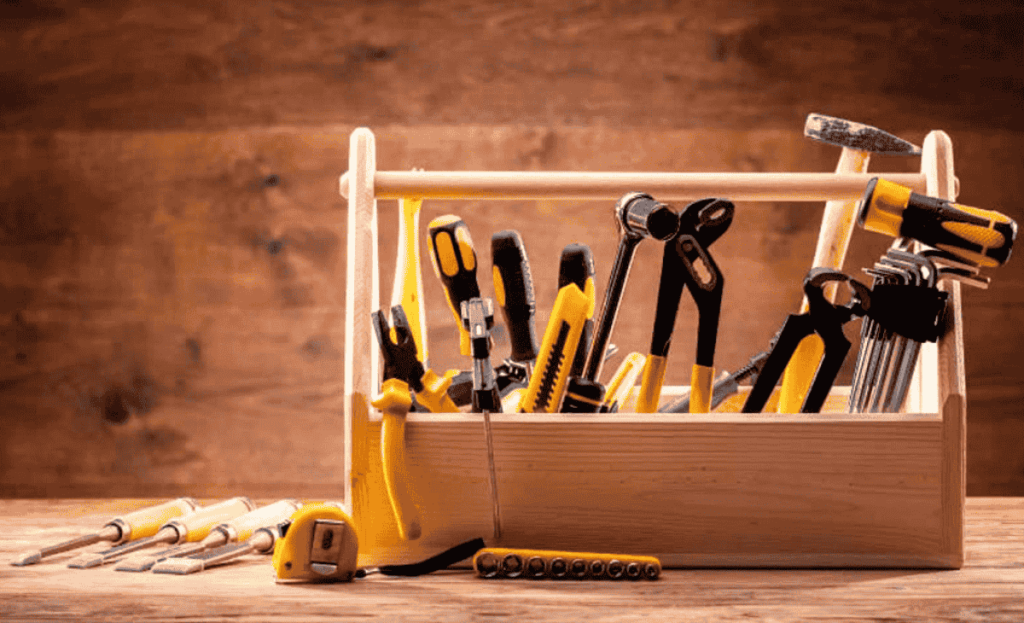Renovating a rental property is one of the best ways to increase its value, improve tenant satisfaction, and maximize your return on investment. However, finding reliable contractors who provide quality work, meet deadlines, and understand your budget is critical—especially in Utah’s competitive real estate market. Here’s a guide to help Utah investors vet contractors for rental property renovations effectively.
Join our Utah investor group for courses, networking, and support to succeed in real estate.
1. Start with Recommendations and Online Research
The first step in finding a reliable contractor is to ask for recommendations from other investors, property managers, or real estate agents. Trusted referrals can save you time and connect you with professionals who have a proven track record.
- Ask for Referrals: Reach out to local investors, landlords, or members of real estate investment groups in Utah. Many investors are willing to share trusted contractor contacts and can provide insights on their experiences.
- Research Online: Use sites like Angie’s List, Yelp, and Google Reviews to get a feel for contractors’ reputations. Additionally, websites like the Better Business Bureau (BBB) list complaints or unresolved issues, which can be a red flag.
- Example: The Utah Real Estate Investors Association (Utah REIA) is a great resource for networking and may have recommendations for contractors who specialize in rental properties.
2. Verify Licensing, Insurance, and Bonding
Utah requires contractors to be licensed, especially for larger renovation projects. Licensing ensures that contractors meet basic qualifications and adhere to state regulations, and insurance protects you from liability in case of accidents or property damage.
Before hiring a contractor, confirm they’re licensed for the work they’ll be performing. The Utah Division ofOccupational and Professional Licensing (DOPL) allows you to check a contractor’s license status, ensuring they meet state requirements.
- Check for Licensing: In Utah, you can verify a contractor’s license on the Utah Division of Occupational and Professional Licensing (DOPL) website. Verify that they’re licensed for the type of work your project requires (e.g., electrical, plumbing, general contracting).
- Ask for Proof of Insurance: Ensure that the contractor carries both liability insurance and workers’ compensation insurance. Liability insurance protects you if damage occurs to your property, while workers’ compensation covers any injuries that happen on-site.
- Look for Bonded Contractors: Bonding protects you if a contractor fails to complete the project or doesn’t meet contractual obligations.
- Tip: Contractors should be willing to provide documentation of their license and insurance. Avoid those who hesitate to do so.
3. Review Their Experience with Rental Property Renovations
Rental property renovations often differ from residential home renovations, as they focus on cost-effective, durable materials that stand up to tenant use. Contractors with experience in investment properties understand the need for quality work that fits within a budget.
- Ask About Similar Projects: Look for contractors with specific experience in rental property renovations or multi-family dwellings. Ask about past projects to gauge their familiarity with durable, low-maintenance materials suitable for rentals.
- Request a Portfolio: A portfolio of completed projects allows you to see the quality of the contractor’s work and judge whether their style aligns with your expectations.
- Example: Contractors familiar with Utah rental properties may recommend durable materials like vinyl plank flooring or quartz countertops, which are cost-effective and appeal to tenants.
4. Get Multiple Bids and Detailed Estimates
Obtaining multiple bids helps you compare costs, assess each contractor’s understanding of the project, and identify potential red flags. Ensure that each bid includes a detailed breakdown of materials, labor, timelines, and payment schedules.
- Request at Least Three Bids: Compare costs from at least three contractors to get a realistic sense of pricing and avoid overpriced bids. Be cautious of bids that are significantly lower than others, as they may indicate a lack of experience or an intention to cut corners.
- Evaluate the Scope of Work: Ensure the estimate includes a comprehensive scope of work, listing specific materials, project stages, and labor costs.
- Tip: A detailed estimate can prevent misunderstandings and unexpected costs. For example, if a contractor doesn’t specify brand or type of materials, clarify this to avoid surprise expenses.
5. Check References and Past Client Reviews
Contacting past clients is a great way to learn about a contractor’s reliability, professionalism, and quality of work. Look for feedback on how well the contractor communicated, met deadlines, and handled issues.
Better Business Bureau (BBB) provide verified reviews and ratings, helping you find professionals with strong track records.
- Ask for References: Request at least three references from recent projects. When contacting these references, ask specific questions about the contractor’s punctuality, communication, and problem-solving abilities.
- Look for Patterns in Online Reviews: Online reviews can reveal patterns, such as frequent delays or budget overages. Focus on reviews from Utah residents, as these reflect local expectations and standards.
- Example Questions:
- Was the project completed on time and within budget?
- How responsive was the contractor to questions or concerns?
- Would you hire this contractor again for another project?
6. Understand Their Contract Terms and Payment Structure
A clear, well-defined contract protects both you and the contractor by outlining responsibilities, timelines, materials, and costs. A good contractor will provide a contract that specifies project details and is transparent about payment expectations.
- Read the Contract Thoroughly: Ensure the contract includes start and end dates, the total cost, payment schedule, a detailed project scope, and warranties or guarantees. Avoid contractors who push for upfront payments exceeding 10-15% of the total project cost.
- Avoid Cash Payments: Stick to traceable payment methods like checks or electronic transfers. This provides a clear record of payments and discourages under-the-table arrangements that lack accountability.
- Tip: In Utah, contractors can only request payment for work completed. Avoid contractors who ask for large sums upfront without completing significant portions of the work.
7. Evaluate Communication Style and Professionalism
Effective communication is crucial in renovation projects, as it ensures that you stay updated on progress and are informed of any issues that arise. During the vetting process, take note of how responsive and professional the contractor is.
- Communication Expectations: Ask how often the contractor will provide updates and which communication methods (e.g., phone, email, or in-person meetings) they prefer.
- Responsiveness: A good contractor responds promptly to inquiries and is clear about their availability. Consistent delays in communication may indicate a lack of organization or reliability.
- Tip: A contractor who answers questions transparently and promptly is more likely to maintain a professional relationship throughout the project.
8. Check for Warranties and Follow-Up Services
Ask about warranties on both labor and materials to ensure your investment is protected if issues arise after project completion.
- Labor Warranties: Contractors often provide a warranty on their labor, typically lasting one year. This covers any work-related issues, such as poorly installed fixtures or materials.
- Material Warranties: Some materials, like roofing and flooring, come with manufacturer warranties. Ensure that your contractor explains any warranties and keeps receipts and product information for your records.
- Example: If a contractor offers a one-year warranty, they should be willing to return and address any issues within that timeframe at no extra cost.
Final Thoughts
Hiring a trustworthy contractor for rental property renovations is essential for ensuring quality work, timely completion, and cost-effective upgrades. By following these steps, Utah investors can vet contractors thoroughly, build successful working relationships, and create durable, tenant-friendly spaces that enhance property value. With the right contractor, you’ll have peace of mind that your property is in capable hands and set up for long-term success.
Work with a real estate expert who understands Utah’s investment market.



